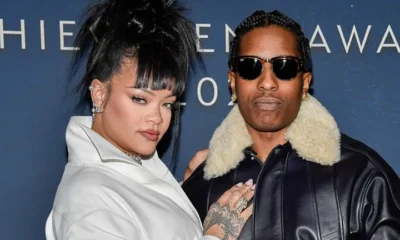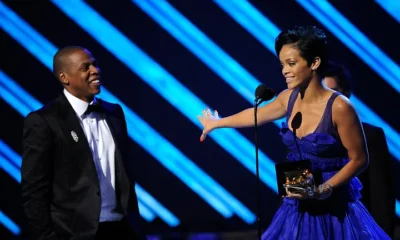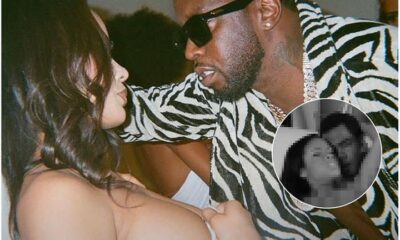CELEBRITY
Breaking News (R&R): The Internet Can’t Handle R. Kelly & Rihanna’s Shocking Music Drop From Jail
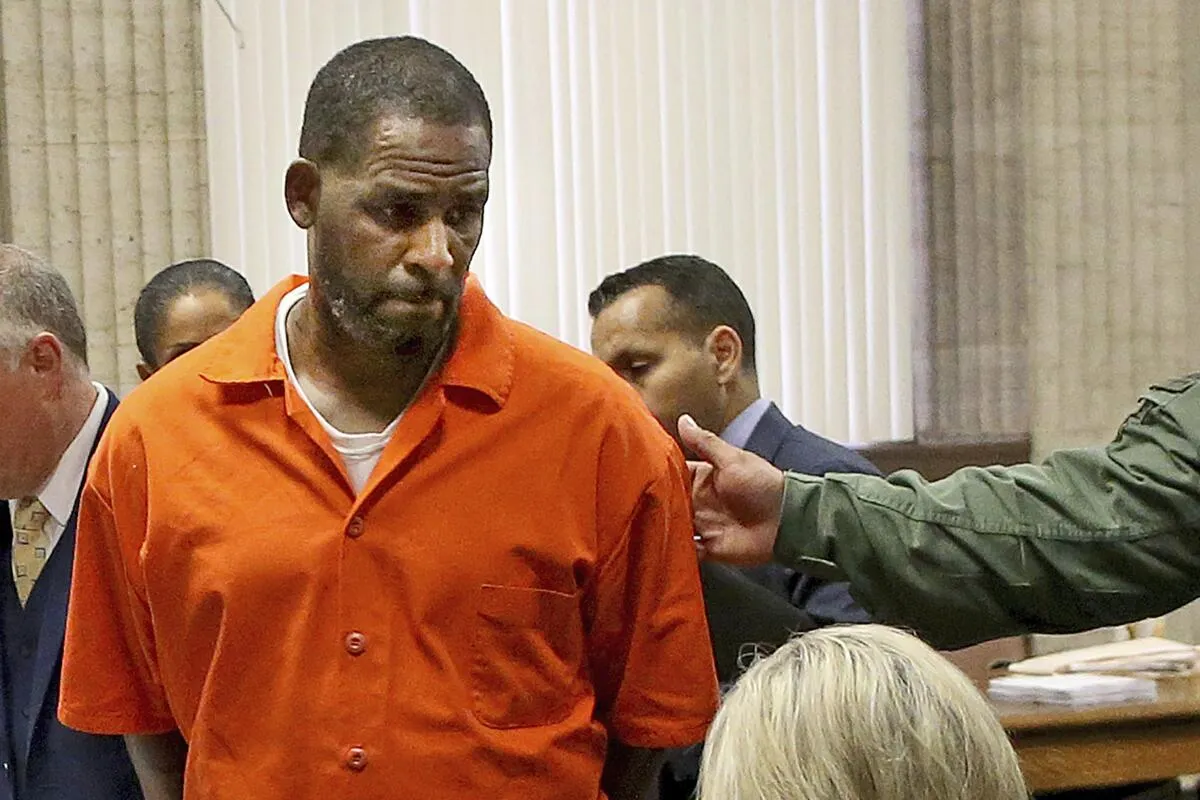
The world of music has always thrived on unexpected collaborations, but the news that R. Kelly and Rihanna have released a new track while Kelly is still behind bars has sent the internet into a frenzy. The phrase “shocking” feels almost too mild to capture the emotional waves sweeping across fans, critics, and cultural commentators. For many, the idea of these two titans of the music industry joining forces is surreal. For others, it is a reminder of the unpredictable way in which the music business operates, constantly blurring the lines between artistry, controversy, and public reception.
This isn’t just another headline about a celebrity release. The story combines the legacy of R. Kelly’s music career, the ongoing debates surrounding his criminal history, and the immense cultural influence that Rihanna holds. Together, these forces have created a cultural earthquake that has dominated conversations across social media platforms, music blogs, and entertainment shows.
The Context of R. Kelly’s Incarceration
To understand why this release is so shocking, it’s necessary to revisit the context of R. Kelly’s imprisonment. The singer, once known as the “King of R&B,” has spent decades shaping the sound of contemporary rhythm and blues. His catalog includes era-defining tracks, and his vocal abilities remain undeniable. Yet, his name became synonymous with scandal after a string of allegations and criminal convictions tied to sexual misconduct.
Since his incarceration, most assumed that Kelly’s musical career was permanently on pause, if not entirely over. The idea that he could record, produce, and release music while serving time has raised a series of logistical and ethical questions. How does an incarcerated man manage to participate in a professional studio-quality recording? What does it mean for the music industry to amplify his voice again? And what does it signal to survivors who have long awaited accountability? These questions swirl in the background of every headline about this release.
Rihanna’s Return After a Long Musical Hiatus
On the other side of this collaboration lies Rihanna, one of the most influential global icons of the 21st century. While she has remained in the spotlight through her business empire—particularly Fenty Beauty and Savage X Fenty—fans have been begging for her musical return. Her last full-length album, Anti, was released in 2016, and although she delivered a stunning performance at the Super Bowl halftime show, the absence of consistent new music has created a sense of longing among her audience.

The announcement that Rihanna would collaborate with R. Kelly, of all people, seemed unthinkable. Not only because of Kelly’s legal troubles, but also because Rihanna herself has been open about her experiences as a survivor of abuse. This makes her involvement layered with complexity, sparking debates about artistic freedom, personal decision-making, and the possibility of separating art from the artist.
The Internet’s Explosive Reaction
As soon as the track dropped, Twitter, Instagram, TikTok, and Reddit lit up with hashtags and heated threads. Phrases like “Rihanna x R. Kelly” and “Jailhouse anthem” trended worldwide within hours. The reactions were polarized, ranging from absolute excitement to harsh condemnation.
Some fans celebrated the unexpected pairing, praising the song’s quality and hailing it as an instant hit. They argued that Rihanna’s presence lent credibility and freshness to Kelly’s undeniably strong musical abilities, regardless of his personal controversies. Others, however, expressed shock and disappointment, criticizing Rihanna for aligning herself with an artist many feel should no longer hold space in the industry.
Memes flooded timelines, mixing humor with disbelief. One viral post read: “Only Rihanna could break the internet with a collab from jail,” while another joked, “R. Kelly found better Wi-Fi in prison than I have at home.” But beneath the humor lies a serious tension about whether society is ready—or should even attempt—to reengage with Kelly’s art.
The Song Itself: A Powerful Blend of Styles
The track, reportedly titled “Redemption Flame”, fuses the soulful, emotive qualities that have long defined R. Kelly’s music with Rihanna’s commanding presence and genre-defying versatility. Early reviews describe it as a mid-tempo ballad with gospel influences, layered harmonies, and a powerful chorus that showcases Rihanna’s voice at its rawest.
What is undeniable is the musical chemistry. Despite the ethical storm surrounding the collaboration, the production demonstrates a level of polish and innovation that makes it difficult for listeners to dismiss outright. The song’s lyrics, centered on themes of resilience, second chances, and redemption, only intensify the controversies, as many interpret them as Kelly’s attempt at rebranding himself through art.
The Ethical Debate: Can Art Be Separated from the Artist?
At the heart of the uproar lies a central question: can listeners separate R. Kelly’s art from his actions? This debate has existed for decades, resurfacing every time a celebrated figure falls from grace. With this release, the question is unavoidable.
Supporters of the collaboration argue that art should be evaluated independently from the artist’s personal life. They emphasize the cultural value of Rihanna’s return to music and suggest that audiences should appreciate the artistry without endorsing Kelly’s past. Critics counter that amplifying Kelly’s work implicitly grants him relevance and a platform he should no longer possess, especially when his crimes directly involve exploitation.
This clash of perspectives is part of why the internet feels so divided. The song isn’t merely a piece of entertainment—it has become a moral litmus test for fans, critics, and fellow artists.
Rihanna’s Silence and Strategic Mystery
Adding fuel to the fire is the fact that Rihanna has not made any public statement about the collaboration. Neither interviews nor social media posts have clarified her reasoning, leaving the public to speculate endlessly. Was this a decision rooted in pure artistic curiosity? Was it an act of rebellion against industry norms? Or was it a calculated move designed to generate maximum shock value before her long-awaited return to music?
Rihanna’s silence creates an aura of mystery, allowing the narrative to spiral beyond her control. Yet, it also adds to her mystique, a quality that has long
defined her career. She is an artist who thrives on unpredictability, and this collaboration has once again demonstrated her ability to keep the world guessing.
The Industry’s Uneasy Position
Music industry insiders are reportedly divided. Some producers and executives see the release as a bold, risk-taking move that might redefine the boundaries of collaboration. Others worry that aligning with Kelly’s name could alienate significant portions of the audience and damage Rihanna’s otherwise pristine brand image.
Streaming platforms, too, face scrutiny. Spotify, Apple Music, and YouTube have all hosted the track, which has quickly climbed trending charts. But with calls for boycotts and petitions demanding its removal, these platforms must decide whether they
prioritize artistic freedom or corporate responsibility in the face of public backlash.
Cultural Impact Beyond the Music
The collaboration transcends music, becoming a mirror for broader cultural debates about accountability, forgiveness, and celebrity influence. The release forces listeners to confront uncomfortable truths about how society consumes art and how much weight is placed on moral consistency.
For younger generations, this moment may feel like a crash course in media literacy—understanding that the artists they idolize are complicated individuals capable of both brilliance and harm. For older fans, it revives long-standing debates about the role of the audience in holding artists accountable.
What Happens Next?
The trajectory of this collaboration remains uncertain. Will it become a fleeting headline, overshadowed by the next celebrity scandal, or will it spark a lasting conversation about the intersection of art, ethics, and commerce? Much depends on how Rihanna chooses to navigate the fallout and whether she will provide clarity about her intentions.
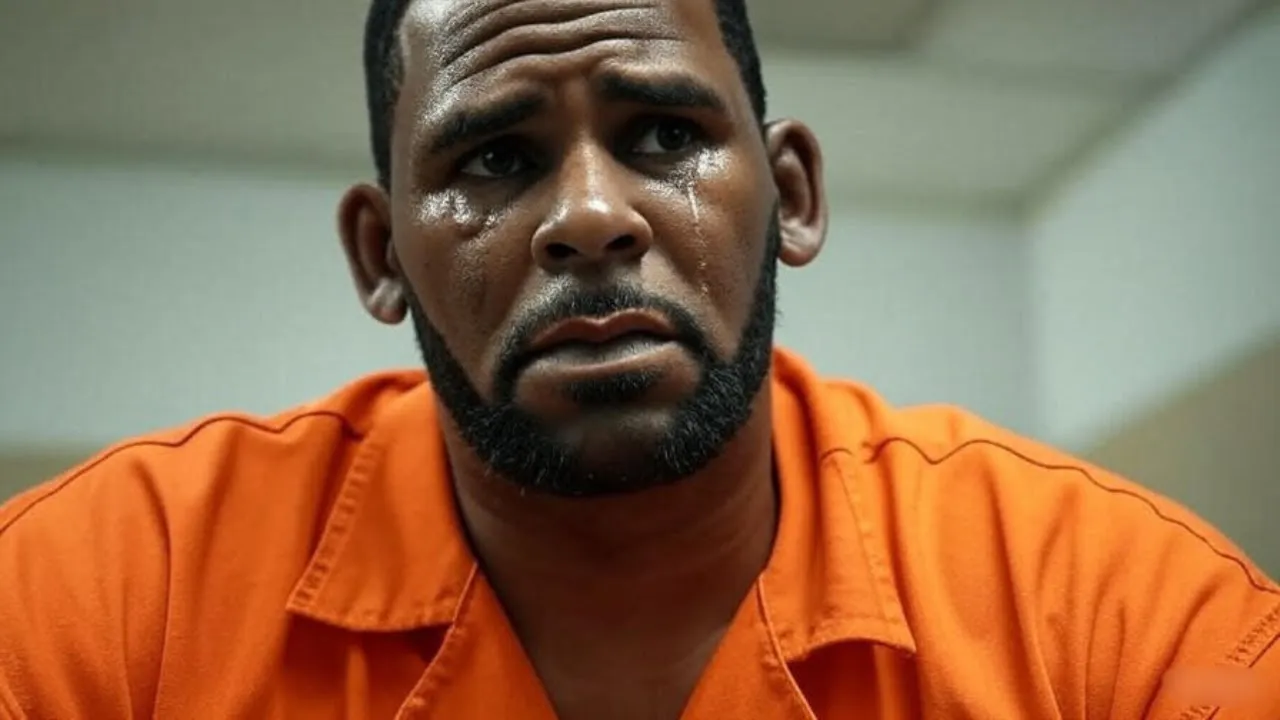
As for R. Kelly, the release has reignited discussions about whether his music deserves a place in contemporary culture at all. For some, this track will always be tainted by the context of his crimes. For others, it serves as proof that talent and artistry cannot be silenced, even behind bars.
Conclusion: A Moment That Redefines Shock Value
The phrase “the internet can’t handle it” perfectly encapsulates the chaos that erupted when Rihanna and R. Kelly dropped their shocking collaboration from jail. It is a cultural event that blends artistry with controversy, beauty with discomfort, and music with morality.
Whether one loves or hates the song, the undeniable truth is that this collaboration has forced the world to reckon with uncomfortable questions about what we value in art and who we are willing to forgive. As hashtags continue to trend and debates rage on, one thing is clear: the release of this track will be remembered not just as a surprising musical moment, but as a turning point in the ongoing conversation about accountability in the entertainment industry.






